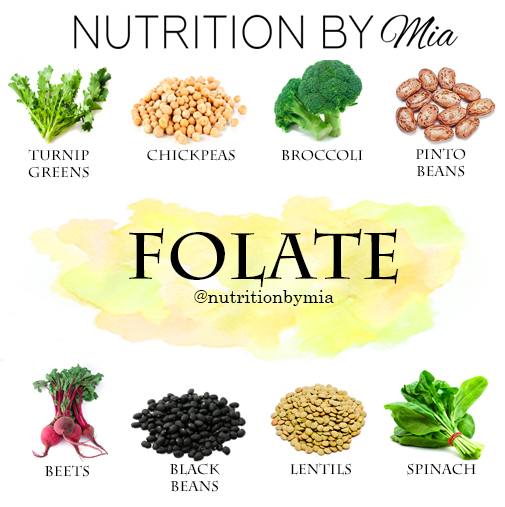
Soon-to-be mothers know that this water-soluble B vitamin is crucial for a healthy pregnancy. However, not only mothers should be wary of this key nutrient because of its critical roles in the body particularly in DNA metabolism and metabolizing our food. Folate is a naturally present in some foods and added to others. Seeking out quality folate-containing foods will help keep you healthy and your cells working optimally.
Why folate is so crucial:
Being deficient in folate can be extremely detrimental especially for soon-to-be moms and can lead to neural tube defects in newborns. Isolated folate deficiency is uncommon as it usually coexists with other nutrient deficiencies.
Folate is a part of our 1-carbon metabolic reactions and works in conjunction with vitamins B12 and B6. These nutrients play a vital role in DNA metabolism and methylation reactions. Aberrations in these pathways have been linked to cancer. (Just another reason to eat your leafy greens!)
Having adequate folate, vitamin B12 and B6 will help lower homocysteine levels in the body which have been associated with higher risk of heart disease.
Food sources:
Leafy greens and legumes are two commonly consumed sources of folate. Liver, yeast, cereals and grains are some other sources. Note that cereals and grains are fortified sources.
Because it is a water soluble B vitamin, the best methods of preparation include serving fruits and vegetables raw or steaming them in as little water as possible.
How much do we need:
Adults need 400 micrograms per day of this critical nutrients while pregnant women need to obtain 600 micrograms and lactating women need 500 micrograms.












